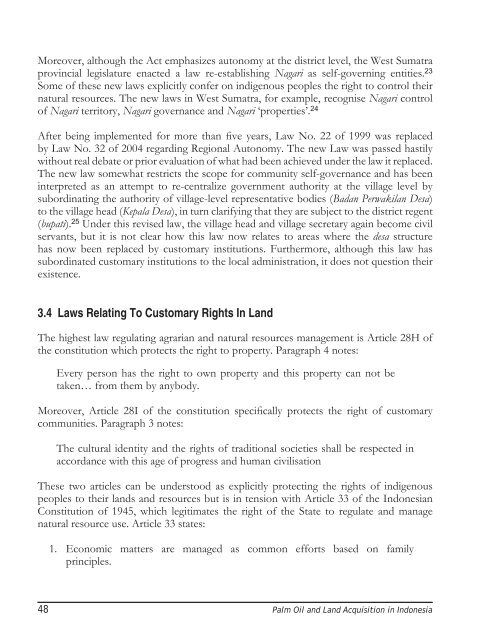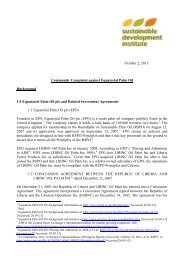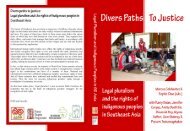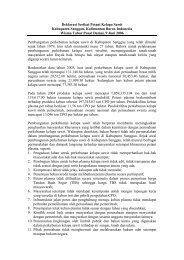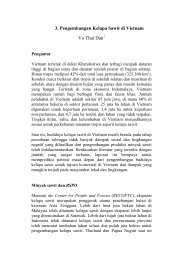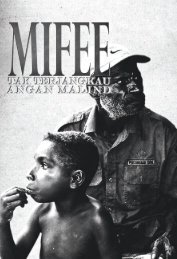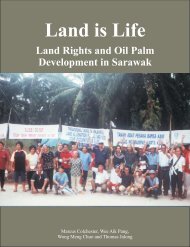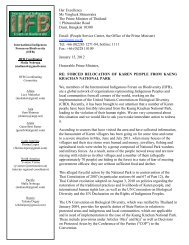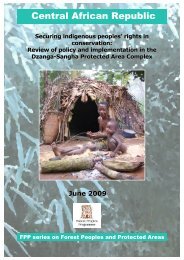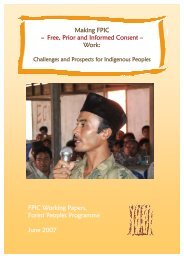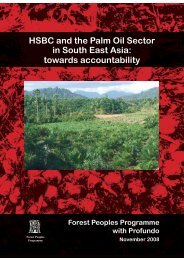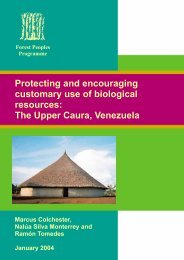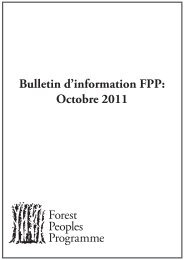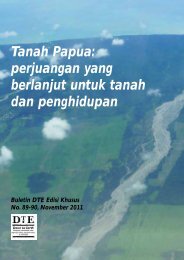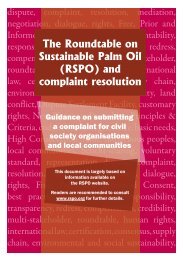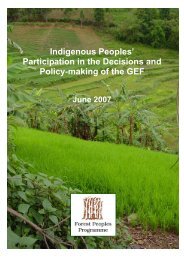Final Land Acquisition Book English.indd - Forest Peoples Programme
Final Land Acquisition Book English.indd - Forest Peoples Programme
Final Land Acquisition Book English.indd - Forest Peoples Programme
Create successful ePaper yourself
Turn your PDF publications into a flip-book with our unique Google optimized e-Paper software.
Moreover, although the Act emphasizes autonomy at the district level, the West Sumatra<br />
provincial legislature enacted a law re-establishing Nagari as self-governing entities. 23<br />
Some of these new laws explicitly confer on indigenous peoples the right to control their<br />
natural resources. The new laws in West Sumatra, for example, recognise Nagari control<br />
of Nagari territory, Nagari governance and Nagari ‘properties’. 24<br />
After being implemented for more than five years, Law No. 22 of 1999 was replaced<br />
by Law No. 32 of 2004 regarding Regional Autonomy. The new Law was passed hastily<br />
without real debate or prior evaluation of what had been achieved under the law it replaced.<br />
The new law somewhat restricts the scope for community self-governance and has been<br />
interpreted as an attempt to re-centralize government authority at the village level by<br />
subordinating the authority of village-level representative bodies (Badan Perwakilan Desa)<br />
to the village head (Kepala Desa), in turn clarifying that they are subject to the district regent<br />
(bupati). 25 Under this revised law, the village head and village secretary again become civil<br />
servants, but it is not clear how this law now relates to areas where the desa structure<br />
has now been replaced by customary institutions. Furthermore, although this law has<br />
subordinated customary institutions to the local administration, it does not question their<br />
existence.<br />
3.4 Laws Relating To Customary Rights In <strong>Land</strong><br />
The highest law regulating agrarian and natural resources management is Article 28H of<br />
the constitution which protects the right to property. Paragraph 4 notes:<br />
Every person has the right to own property and this property can not be<br />
taken… from them by anybody.<br />
Moreover, Article 28I of the constitution specifically protects the right of customary<br />
communities. Paragraph 3 notes:<br />
The cultural identity and the rights of traditional societies shall be respected in<br />
accordance with this age of progress and human civilisation<br />
These two articles can be understood as explicitly protecting the rights of indigenous<br />
peoples to their lands and resources but is in tension with Article 33 of the Indonesian<br />
Constitution of 1945, which legitimates the right of the State to regulate and manage<br />
natural resource use. Article 33 states:<br />
1.<br />
Economic matters are managed as common efforts based on family<br />
principles.<br />
48 Palm Oil and <strong>Land</strong> <strong>Acquisition</strong> in Indonesia


